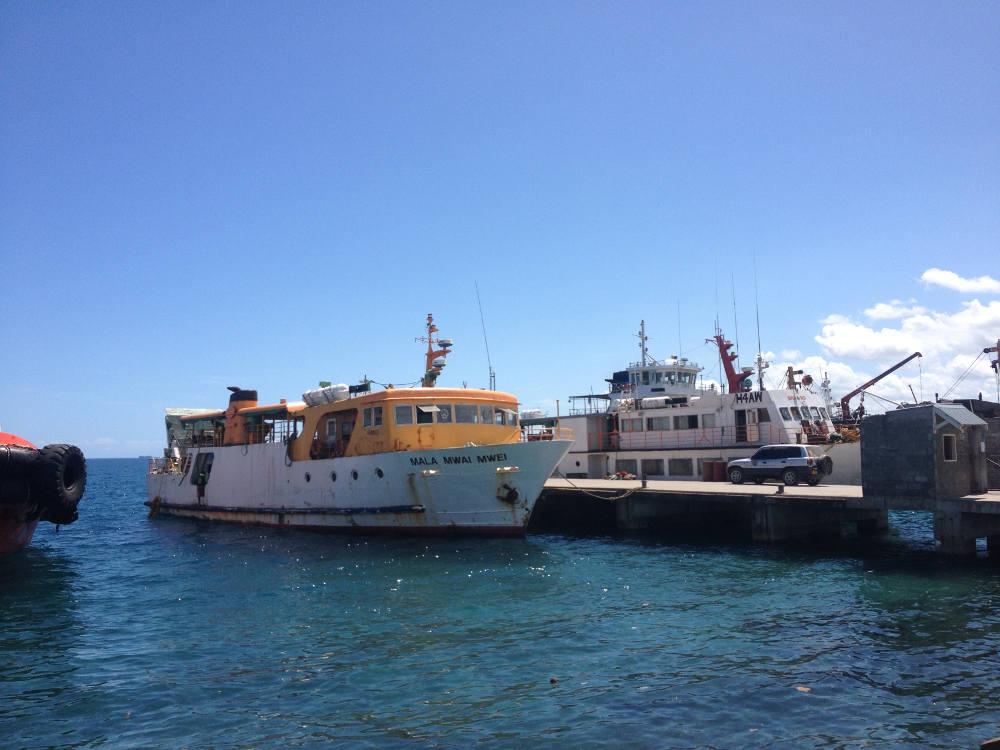To assist Solomon Islands in strengthening its maritime governance framework, the Pacific Community will deliver activities related to the International Maritime Organization (IMO) Member State Audit Scheme (IMSAS), Pacific Islands Domestic Ship Safety (PIDSS) programme, key maritime and port personnel trainings, maritime audits and safety of navigation.
In support of these efforts a team from the Pacific Community’s (SPC) Transport Programme is in Honiara this week (13–24 March) to work with public and private counterparts on the preparation towards the IMO Member State Audit Scheme (IMSAS) with the aim to adopt a National Roadmap to ensure the country is ready for its audit by IMO in July 2019.
The objective of the audit is to determine the extent to which Solomon Islands gives full and complete effect to its obligations and responsibilities contained in some IMO instruments to which it is a Party to and to identify where capacity-building activities would have the greatest effect.
Solomon Islands comprise of six major islands and over 900 smaller islands which cover a land area of 28,400 square kilometres. Interestingly, its Exclusive Economic Zone total area is almost 56 times larger than it is (1,589,477 square kilometres), which places a number of responsibilities upon the country as a maritime nation.
The effective delivery of maritime services relies primarily on a good governance framework from all Pacific governments, supported by an adequate policy and legal framework and effective coordination of all public and private stakeholders.
The Solomon Islands Maritime Safety Administration (SIMSA) and SPC have been working closely in the past years to strengthen the country’s maritime governance through capacity building and ship safety programme working with the private sector.
SPC Deputy Director Transport, Thierry Nervale, said building on the activities in 2015–2016 and the 2016 National Workshop on Maritime Governance and Safety in Solomon Islands, SPC will continue the PIDSS auditing process, which started in 2016, to ensure effective implementation of safety management systems on board domestic ships for improved safety at sea and protection of the environment.
“As part of our capacity building activities, we will also conduct trainings for port personnel and provide participants with understanding and skills to perform their tasks in a safe and secure manner and in compliance with international mandatory standards,” Mr Nervale said.
SIMSA Acting Director, Capt. Tim Harris, said the IMO and SPC activities help SIMSA’s efforts to upgrade and improve implementation of maritime legislation in Solomon Islands to a standard that will enable the outcome of the IMSAS audit to be at an acceptable level.
“Currently, SIMSA is not able to satisfy Solomon Islands obligations to the IMO Conventions, and much work needs to be done to prepare us. The assistance from IMO/SPC is vital to SIMSA’s efforts, if Solomon Islands maritime industry is to be successful,” Capt. Harris said.
As a follow-up of the SPC-International Association of Marine Aids to Navigation and Lighthouse Authorities (IALA) joint visit in January 2016, SPC will conduct activities aiming at implementing the recommendation of the 2016 IALA assessment report, ensuring Solomon Islands’ deliver Safety of Navigation services and Aids to Navigation in compliance with international standards to provide the adequate level of safety at sea to all Solomon Islanders.
Media contacts:
Atishma Lal, SPC Project Information Assistant, [email protected] or +679 3379402
Useful links:
Zoom: making ferry travel safer in Solomon Islands
Our members: Solomon Islands
